Search
Did you mean: Darius I?
Search Results
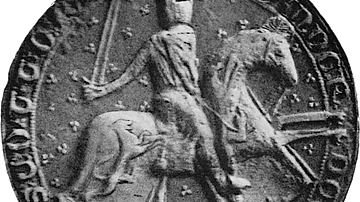
Definition
Alexander III of Scotland
Alexander III of Scotland reigned from 1249 to 1286 CE. Succeeding his father Alexander II of Scotland (r. 1214-1249 CE) at the age of eight, the young king's early reign was blighted by rivalries between his nobles, a situation made more...

Definition
Xerxes I
Xerxes I (l. 519-465, r. 486-465 BCE), also known as Xerxes the Great, was the king of the Persian Achaemenid Empire. His official title was Shahanshah which, though usually translated as `emperor', actually means `king of kings'. He is identified...
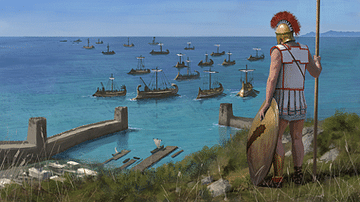
Definition
Persian Wars
The Persian Wars refers to the conflict between Greece and Persia in the 5th century BCE which involved two invasions by the latter in 490 and 480 BCE. Several of the most famous and significant battles in history were fought during the Wars...

Definition
Persian Literature
Persian literature differs from the common definition of “literature” in that it is not confined to lyrical compositions, to poetry or imaginative prose, because the central elements of these appear, to greater or lesser degrees, in all the...

Definition
Richard III of England
Richard III of England ruled as king from 1483 to 1485 CE. Richard succeeded Edward V of England (r. Apr-Jun 1483 CE), the son of Edward IV of England (r. 1461-1470 CE & 1471-1483 CE) in mysterious circumstances. The young Edward V and his...

Definition
Edward III of England
Edward III of England reigned as king from 1327 to 1377. Succeeding his father Edward II of England (r. 1307-1327) following his enforced abdication and then murder, Edward III would take revenge on his father's enemies, who included the...
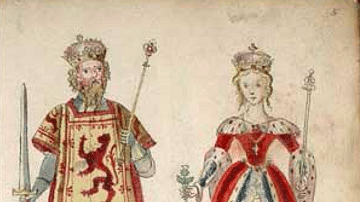
Definition
Malcolm III of Scotland
Malcolm III of Scotland (aka Máel Coluim mac Donnchada) reigned as king from 1058 to 1093 CE. He took the throne after his young predecessor Lulach (r. 1057-1058 CE), the stepson of Macbeth, king of Scotland (r. 1040-1057 CE), was killed...
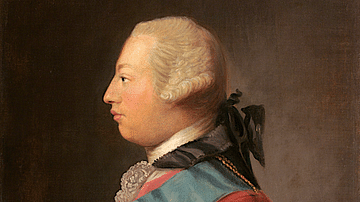
Definition
George III of Great Britain
George III of Great Britain (r. 1760-1820) was the third of the Hanoverian monarchs, and he remains the longest-reigning king in British history. His six decades on the throne saw the creation of the United Kingdom, the loss of the 13 American...
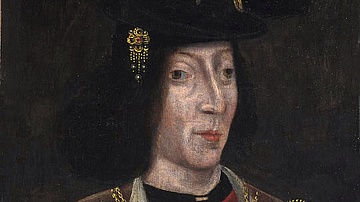
Definition
James III of Scotland
James III of Scotland reigned as king from 1460 to 1488. He succeeded his father James II of Scotland (r. 1437-1460) at the age of eight, which led to some nobles taking advantage of the king's minority and even abducting him. James was also...
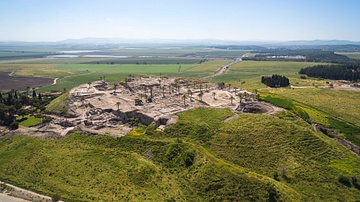
Article
Thutmose III at The Battle of Megiddo
The ancient site of Megiddo was the scene of a number of battles in antiquity and is best known as the source of the word armageddon, the Greek rendering of the Hebrew Har-Megiddo ('Mount of Megiddo') from the biblical Book of Revelation...